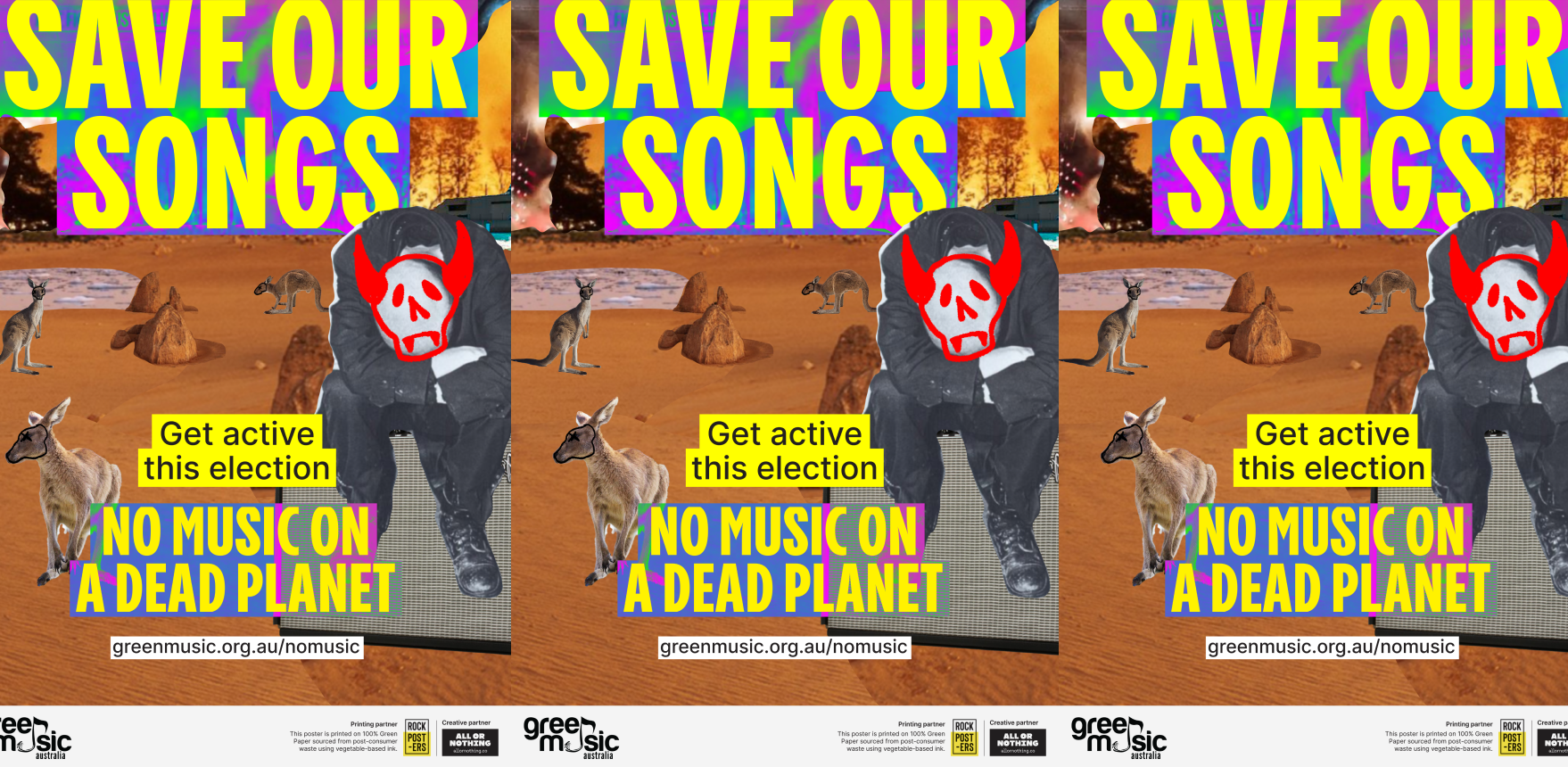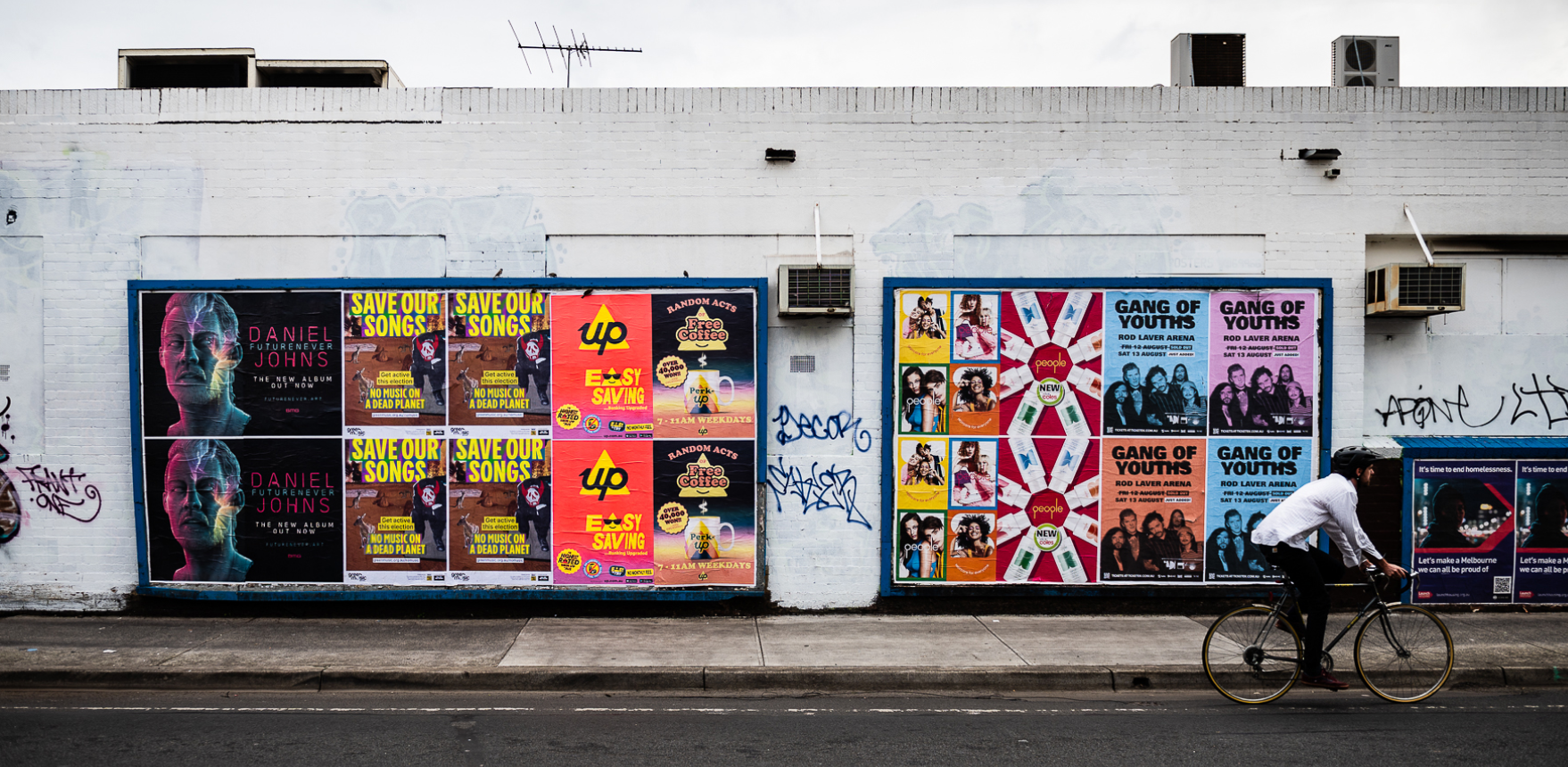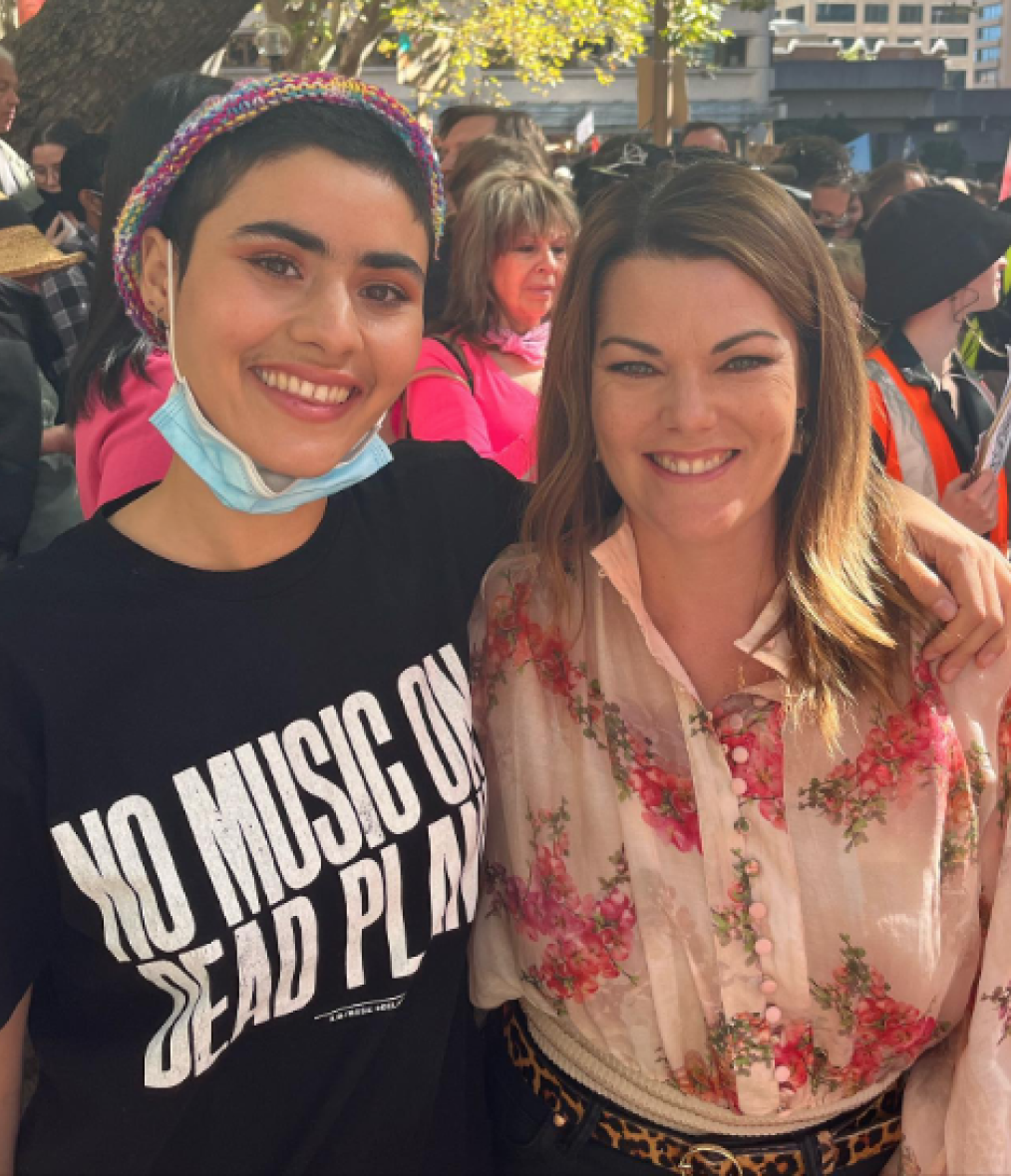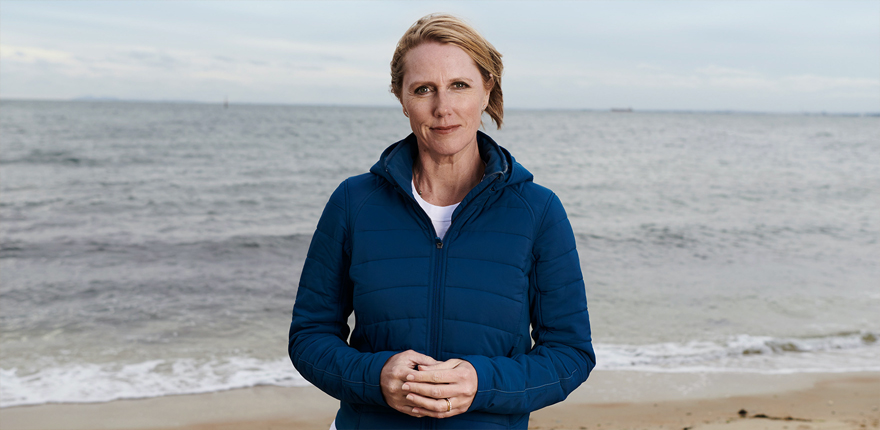IF THERE’S NO MUSIC ON A DEAD PLANET, WHAT WOULD WE DO TO SAVE IT?
Green Music Australia: Strategy, Creative, Communications
Outdoor media in Melbourne
Australia reached a fork in the road at the federal election in 2022. We could continue on a path deep into the climate emergency or choose an alternative future of reduced emissions, lighter impact on the planet and regeneration. The No Music on a Dead Planet campaign aimed to bring out the vote for the planet and grow the change we need.
Music brings us together
Green Music Australia is lobbying Canberra and building knowledge and capacity in the music industry to help artists, labels and events transition to a sustainable industry. For the election, they were determined that young voters and decision-makers in Canberra should understand the impact of climate inaction on music.
Collaborating with a partner organisation in the UK – Music Declares Emergency – we revisited a previous campaign, No Music on a Dead Planet, and weighed its suitability for a 2022 push.

Artists spoke to fans at gigs and online and wore their heart on their sleeve


Posters were used up and down the East coast
“Legal counsel basically reiterated what we already know… that taking songs off of DSPs like Spotify is a tricky business… it might put some folks offside, like record labels. But it could work.”
— Berish Bilander, CEO, Green Music Australia
The time is now
To date, the No music statement had been an exciting slogan and t-shirt design but arguably had not underlined the timeliness of the crisis and what could be done to influence the outcome.
A federal election was the chance to up the ante and provide an outlet for the complex emotions and energy around the climate crisis. It’s not unusual to release a protest song or add a dozen voices to the ruckus. We wanted something more powerful and for real conversations between artists and fans to take place ahead of the vote. There’s little more poignant than an artist and fan connecting mid-gig on something that matters.
Organic social media reached 7m people during the campaign.
Save Our Songs
We were curious to know what might happen if we called music back, rather than releasing it this year. What would happen if songs were to become endangered or extinct due to the climate crisis? With the development of Save our Songs as the focus within ‘No Music’, for the campaign we asked fans to consider music they love and times they have shared around that song and to imagine they might lose it now, this year. Artists were asked to nominate tracks they would be comfortable taking out of rotation until climate action in federal parliament made progress.

The campaign caught the attention of parliamentarians.
New music videos for popular Aussie artists spread the word.
It’s actually happening
As with any tight-knit community, in music, it is not too difficult to spread the word and activate people with the right idea. There is some nuance though as the globalisation of distribution and revenue means there is less commercial freedom and punk ideas are less attractive when it comes to livelihoods and artist-label relationships.
With Spotify, Apple Music and YouTube in mind there were some reservations about removing music and ruffling feathers. We planted the idea of Save Our Songs and removing tracks with agency for each artist to flex with it as needed. And then it grew, one artist after the other.

Regurgitator went one step further and removed their song from Spotify, Soundcloud and YouTube as well.
We did it!
While some artists were removing music from circulation, others were having conversations with fans at gigs, through radio and print and through personal channels like social media. TV picked up the campaign PR and Triple J scheduled a Live At The Wireless with a band repping the campaign and action by artists.
With kids through to Greens senators talking about the campaign and need for action we were able to turn interest and conviction into action at the polls on May 21st. A ‘Greenwave’ and ‘Tealbath’ of climate-focused candidates have radically changed the makeup of our federal parliament and both climate action and a sustainable music industry are now possible.

Activation at the Corner Hotel
“It’s been a triumph – let’s look forward to a kinder, better Australia and a smarter, greener future for us all.”
— Tracee Hutchison, Chairperson, Green Music Australia
The campaign was picked up in the news, by artists and industry.
Skills, people and details
Warren Davies
Project Manager, Senior Strategist
Amber Goedegebuure
Design Director
Chloe Melick, InsideOut
PR
Javi Mi Amor
Artist
Matt Bray
Senior Art Director
Shyaire Ganglani
Senior Copywriter
Services
Strategy, Creative & Communications
SDGs
Responsible Consumption and Production (#12), Climate Action (#13)
More projects like this one

Zoe Daniel Brand and Website »

Sustainable Floristry Network Brand and Service Design »